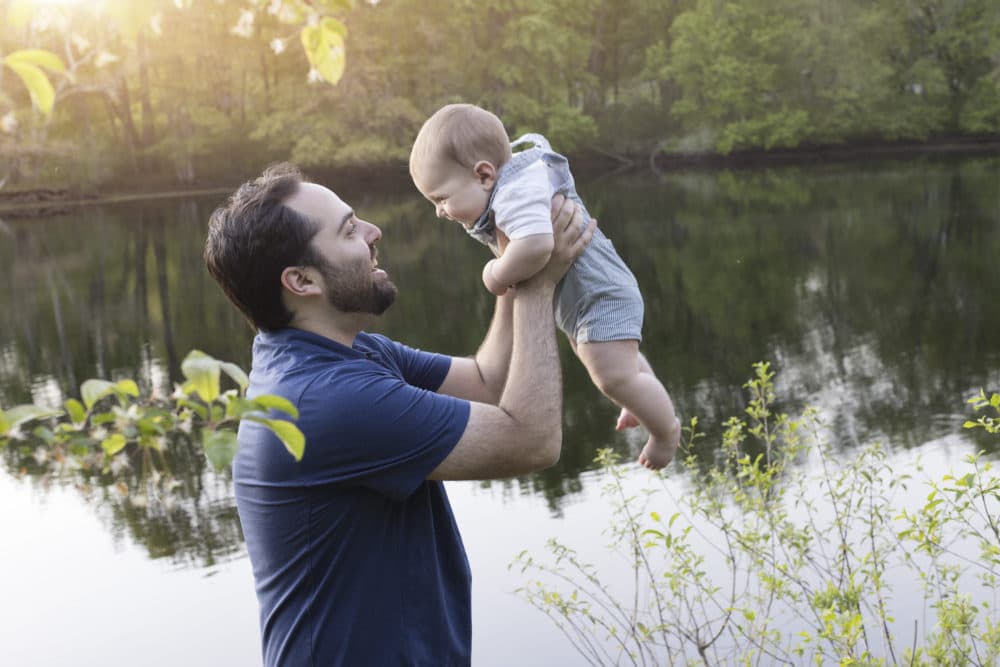Advertisement
Commentary
Stories Help Me Cope With My Cancer. They Can Help Us Through The Pandemic

I'm scarred, both literally and figuratively, although I look healthy to most people. I'm not. The life-threatening cancer that was first discovered in my kidney three years ago is gone for now but the scars whisper a story to me. I’ve grown to appreciate those wounds, grotesque as I used to find them, hidden from the world under my clothing. They help me put words to the trauma I’ve faced. Sometimes they help me form a narrative that lets me cope:
Those four scars on my belly are from the original kidney surgery, when I thought I might be cured with a single operation. These four on my chest came with the tears I shed when a new spot first showed up in my lungs a year and a half later. Those two little ones on my right side are from the cryoablation to the other kidney just last January, three months after our son was born.
Developing a narrative centered around my illness has been one of the most helpful ways I’ve found to make sense of the incomprehensible. I went from being a healthy young man to something that's much harder to define. I don’t seem to be actively dying right now, at least not according to my latest set of scans, but the future remains uncertain — just as it is for all of us 16 months after the pandemic began.
... when we can weave our fears into the story of our lives, we gain some power over them.
The emotional challenges we’ve all faced after experiencing so much widespread death, despair and isolation, can be frightening and confusing, but they are also empowering. As a psychiatrist, I know that when we can weave our fears into the story of our lives, we gain some power over them.
Thinking about my own mortality, for example, makes me less afraid of the smaller dangers that exist in the world. I’m purposefully less careful with my words because I’m no longer fearful that I might offend someone, and this lets me be a more authentic version of myself every day. I am also more ready to say “yes” to invitations I want and “no” to those I don't. I actively choose the path of my days, weeks and months that best align with my value system instead of letting fear and inertia paralyze me. I don’t think I would be living this way if it weren’t for the asteroid that hit my world in the form of cancer.
As we all inch toward the new normal of a post-pandemic world, I wonder if our gained perspective — the emotional scars we’ve endured and held on to — can help us live more fully. Perhaps we can savor the joys of our lives more readily now and rebuff the parts we disdain because the value of those actions has been made clear.
Of course, we’re each likely to make sense of our invisible scars and find value in them in different ways. After all, none of us adjusted to the restrictions and risks we faced in quite the same way, and so the stories we hear from our trauma will be unique to each of us. What we have in common is that there is no easy path back to normalcy. Despite what we may wish, we can’t simply return to a time before the pandemic. Intense life events, particularly those experienced by the entire world, don’t function that way in our minds. They persist, take hold, and then fester, until some kind of meaning can — hopefully — be made. Making sense of it all can be a challenge for even the most insightful mind. As a result, I’m convinced we could all benefit from the pursuit of a narrative that describes our experience.
Advertisement
Thinking about my own mortality ... makes me less afraid of the smaller dangers that exist in the world.
There is precedence for this approach in the arsenal of treatments for post-traumatic stress disorder. Some therapies involve the purposeful telling of stories about ourselves and our experiences so we can better understand and integrate how our emotional worlds have been impacted. This technique lets traumatized individuals become empowered by their resilience and choose new behavioral paths better aligned with their goals and values.
More from WBUR
I believe that in the coming years we’re not going to forget what we’ve been through during this devastating time. Rather, our own narratives will become part of us. Other shared societal traumas — Sept. 11, the assassination of President John F. Kennedy, for instance — elicited everlasting change in our shared American psyche. People still remember where they were when they heard the news of those events and usually have a profound sense of how it changed them in the years to come. How we integrate those shared memories into our own personal stories of ourselves can help to shape how we end up moving forward both individually and together as a society.
Even if we haven’t yet realized it, our stories have already begun to be formed. We sit at neither the beginning nor the end of our own narratives. In the days ahead, it will be wise for us to listen for them, appreciate their meaning and keep moving forward with renewed purpose.
